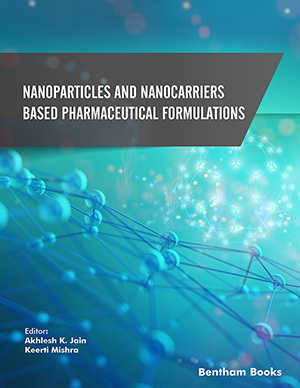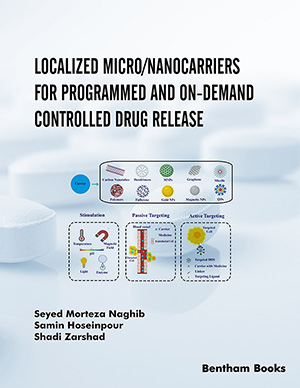
Abstract
Adverse drug reactions (ADRs) are associated with clinical morbidity and, in severe cases, even mortality. Globally billions of dollars are spent on managing these ADRs for common and uncommon diseases. The developing world suffers from a high burden of tuberculosis, which requires 6-8 months of multi-drug treatment. In spite of most cases being treatable the problem persists mainly due to a high attrition rate associated with ADR mediated complications. Due to these reasons drug resistant strains have emerged and are now a serious challenge to TB eradication. To effectively deliver the available treatment regimen and ensure patient compliance it is important to manage ADRs more efficiently. Recent studies have demonstrated that drug outcomes are patient-specific and can, therefore be predicted. A few of these drugs, including a few administered for TB, have shown excellent correlation with response rates and development of ADRs. In this review, we profile information available in public domain for existing anti-TB drugs to understand the genesis of ADRs and patient response. Additionally, human genome variation databases have been used to correlate the frequency of these markers and their genomic variants in different populations.
Keywords: Adverse drug reactions, allele, anti-tuberculosis drugs, genetic marker, pharmacogenomics, side effects, single nucleotide polymorphism, tuberculosis.
Current Drug Metabolism
Title:Adverse Drug Reactions to Anti-TB Drugs: Pharmacogenomics Perspective for Identification of Host Genetic Markers
Volume: 16 Issue: 7
Author(s): Roshan Kumar Sahu, Kan Singh and Swati Subodh
Affiliation:
Keywords: Adverse drug reactions, allele, anti-tuberculosis drugs, genetic marker, pharmacogenomics, side effects, single nucleotide polymorphism, tuberculosis.
Abstract: Adverse drug reactions (ADRs) are associated with clinical morbidity and, in severe cases, even mortality. Globally billions of dollars are spent on managing these ADRs for common and uncommon diseases. The developing world suffers from a high burden of tuberculosis, which requires 6-8 months of multi-drug treatment. In spite of most cases being treatable the problem persists mainly due to a high attrition rate associated with ADR mediated complications. Due to these reasons drug resistant strains have emerged and are now a serious challenge to TB eradication. To effectively deliver the available treatment regimen and ensure patient compliance it is important to manage ADRs more efficiently. Recent studies have demonstrated that drug outcomes are patient-specific and can, therefore be predicted. A few of these drugs, including a few administered for TB, have shown excellent correlation with response rates and development of ADRs. In this review, we profile information available in public domain for existing anti-TB drugs to understand the genesis of ADRs and patient response. Additionally, human genome variation databases have been used to correlate the frequency of these markers and their genomic variants in different populations.
Export Options
About this article
Cite this article as:
Sahu Kumar Roshan, Singh Kan and Subodh Swati, Adverse Drug Reactions to Anti-TB Drugs: Pharmacogenomics Perspective for Identification of Host Genetic Markers, Current Drug Metabolism 2015; 16 (7) . https://dx.doi.org/10.2174/1389200216666150812123725
| DOI https://dx.doi.org/10.2174/1389200216666150812123725 |
Print ISSN 1389-2002 |
| Publisher Name Bentham Science Publisher |
Online ISSN 1875-5453 |
Call for Papers in Thematic Issues
Impact of brain tissue binding and plasma protein binding of drugs in DMPK
The impression of brain tissue binding (BTB) or plasma protein binding (PPB) in Drug Metabolism and Pharmacokinetics is critical to understanding the distribution, efficacy, and potential toxicity of drugs that target the central nervous system (CNS). BTB and high PPB influence the distribution of drugs in the body and their ...read more
Interaction between drugs and endocrine diseases
The introduction of highly active antiretroviral therapy accelerated studies and our understanding on the interaction between pharmacological therapies and endocrine diseases. Drugs can precipitate endocrine via different mechanisms, including direct alteration of hormone production and secretion, dysregulation of hormonal axis, effects on hormonal transport, receptor-binding, and cellular signalling. Common drug-induced ...read more
Metabolism-Mediated Xenobiotic Toxicity
Considering the potent modulation of biotransformation enzyme expression and activities by various therapeutic drugs and environmental chemicals, and the commonly combined exposure of humans to both drugs and the ever increasing environmental pollutants simultaneously, knowledge about the combined toxic effects by modulating biotransformation enzymes, such as P450s, UDP- glucuronosyltransferases, and ...read more
Safety evaluation of vaccine combination
Vaccine combination safety evaluation is a critical field within immunology and public health that focuses on assessing the safety and efficacy of combining different vaccines to maximize protection against various diseases while minimizing potential adverse effects. This process is significant because it ensures that vaccines can be administered together without ...read more
Related Journals
 60
60 2
2
- Author Guidelines
- Graphical Abstracts
- Fabricating and Stating False Information
- Research Misconduct
- Post Publication Discussions and Corrections
- Publishing Ethics and Rectitude
- Increase Visibility of Your Article
- Archiving Policies
- Peer Review Workflow
- Order Your Article Before Print
- Promote Your Article
- Manuscript Transfer Facility
- Editorial Policies
- Allegations from Whistleblowers
- Announcements
Related Articles
-
Effective Delivery Routes and Strategies for Solid Lipid Nanoparticles (SLN) and Nanostructured Lipid Carriers (NLC)
Current Pharmaceutical Design Agave (Agave spp.) and its Traditional Products as a Source of Bioactive Compounds
Current Bioactive Compounds Prominence of Oxidative Stress in the Management of Anti-tuberculosis Drugs Related Hepatotoxicity
Drug Metabolism Letters Molecular Dynamics Simulations of Protein Targets Identified in Mycobacterium tuberculosis
Current Medicinal Chemistry Subject Index To Volume 8
Protein & Peptide Letters New Strategies in Drug Development Focusing on the Anti-Protease- Protease Balance in Alpha-1 Antitrypsin Deficiency
Anti-Inflammatory & Anti-Allergy Agents in Medicinal Chemistry Exploiting Innate γδ T Lymphocytes for Tumor Immunotherapy
Recent Patents on Biomarkers Clostridium difficile Infection in Children with Inflammatory Bowel Disease: Current Evidence
Current Pharmaceutical Design PeMtb: A Database of MHC Antigenic Peptide of Mycobacterium tuberculosis
Current Pharmaceutical Biotechnology Iron Metabolism: A Promising Target for Antibacterial Strategies
Recent Patents on Anti-Infective Drug Discovery Analysis of Wild-Type and Gly96Ala Mutant EPSP Synthase Structures via in Silico Docking with Inhibitors and Molecular Dynamics Simulation
Current Bioactive Compounds Microwave-promoted Synthesis of Novel Bioactive N-based Heterocycles
Mini-Reviews in Organic Chemistry Medicinal Plants and Cancer Chemoprevention
Current Drug Metabolism New Insights into Invasive Aspergillosis - from the Pathogen to the Disease
Current Pharmaceutical Design Virtual Screening on Natural Products for Discovering Active Compounds and Target Information
Current Medicinal Chemistry Computer-Aided Discovery in Antimicrobial Research: In Silico Model for Virtual Screening of Potent and Safe Anti-Pseudomonas Agents
Combinatorial Chemistry & High Throughput Screening Current Advances in the Identification and Characterization of Putative Drug and Vaccine Targets in the Bacterial Genomes
Current Topics in Medicinal Chemistry Targeting Folate Metabolism in the Human Malaria Parasite Plasmodium falciparum
Current Enzyme Inhibition Heterocyclic Compounds as Anti-Inflammatory Agents
Current Bioactive Compounds An Augmented Passive Immune Therapy to Treat Fulminant Bacterial Infections
Recent Patents on Anti-Infective Drug Discovery


















